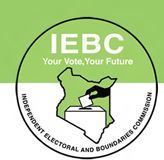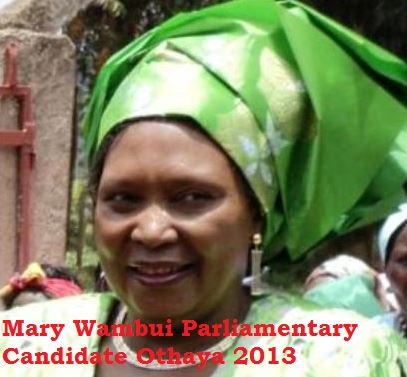IEBC
THE INDEPENDENT ELECTORAL AND BOUNDARIES COMMISSION

- This is the commission in charge of elections in Kenya.
- The commission comprises of the following members:
i) The chairperson
ii) The vice-chairperson
iii) A minimum of one and a maximum of seven commissoners.
- The commissioners are nominated by the parliament select committee;approved and confirmed by the National Assembly then appointed by the President.
- Each member serves a six year term after which they will not be re-appointed again once the term is over. By law no commissioner can be a member of a political party. The commission is headed by the chairperson.
Functions of the IEBC
- Conducting or supervising referenda and elections.
- Registering eligible citizens as voters
- Announcing elections dates and time. It also sets date for by-election.
- Drawing the boundaries of constituencies and wards.
- Regulating the process by which parties nominate candidates for elections.
- Settling electoral disputes.
- Observing, monitoring and evaluating elections.
- Developing a code of conduct for contesting candidates and parties.
- Registering of the candidates for elections.
- Educating voters.
- Maintaining and regularly updating voters register.
- Determining and reviewing the boundaries of constituencies and wards.
- Here we see a woman putting her vote into a sealed box.
- Her vote will be counted later and will help to decide who will become the members of parliament.

Requirements for a parliamentary candidate

In the constitution, a person qualifies to become a member of parliament if he or she:
- is a kenyan citizen
- is registered as a voter.
- must be 21 years and above
- Satisfies educational, moral and ethical requirements as shown by the constitution.
- Is nominated by a political party or is an independent candidate who is supported:
- By at least 1000 registered voters in the constituency if a person wants to be elected to the National Assembly.
- By at least 2000 registered voters if a person wants to be elected to the Senate.
How one may lose a parliamentary seat
- If a Member of Parliament dies.
- If a member is absent for eight sittings without written permission from the speaker.
- If the member resigns from parliament by writing to the speaker.
- If a member resigns from the political party through which he or she was elected.
- If an independent candidate joins a political party.
- If the house of parliament is dissolved by the speaker.
- If a member is disqualified for election for any reason, for example bankruptcy or insanity
- If one is found to have abused or misused a state or public office.
- When imprisoned for more than six months.
- If there is successful petition where the court nullifies the election results or one is found guilty of election irregularities.
Members of Parliament work here, in the National Assembly.

Requirements for a civic candidate
In order to qualify to contest a seat, a person must satisfy the following requirements of the law:
- should be a Kenyan citizen
- Should be a registered voter.
- Should satisfy educational, moral and ethical requirements prescribed by the constitution.
- Should either be nominated by a political party or should be an independent candidate supported by at least 500 registered voters.
- Should have attained 18 years and have a national identity card or a valid passport.
How one may lose a civic seat
- If a member dies.
- If a member is absent for eight sittings of the assembly without written permission from the speaker.
- If a member writes a letter of resignation to the speaker.
- If a member resigns from the party through which he or she was elected.
- If an independent candidate joins a party.
- If the term of the assembly ends.
- If a member is disqualified for election for any reason, for example bankruptcy or insanity
- They are found to have committed an electoral offence.
- To have resigned as a member of a County Assembly.
- Elections have been nullified by a court of law.
The parliamentary electoral process
1. A general election for the members of parliament shall be held after every five years.
2. Voters are registered in all the polling centres.
3. The speaker of National Assembly dissolves the parliament and declares all seats vacant.
4. IEBC appoints representatives who will conduct the polling process
5. The body in charge of elections then gives dates for political parties to nominate their canditates.
6. Candidates are given time to campaign.
7. Elections are then held on the date set in the constitution.
8. The voting process, the ballot boxes are opened and the votes counted.
9. After the voting process, the ballot boxes are opened and the votes counted.
10. The body in charge of elections announces the election results.
Role of citizens in the electoral process
1. Electing leaders of their choice through democratic process
2. Vying for elective positions or volunteering to oversee the electoral process.
3. Ensuring that the elections are free and fair by reporting any irregularities.
4.Paying taxes and other levies. This provides funds for the electoral process.
5. Keeping the elected government in check.
6. Joining a political party.
7. Citizens should attend campaign meetings.
8. Act as a witness in court in case of an election petition.
9. Elect responsible and honest leaders.
10. Register as voters.
Importance of participating in elections
- Ensures that responsible leaders are elected
- It promotes and shows maturity of democracy of a country.
- It is a constitutional requirement.
- It determines the future of a country.
- It is part of a decision-making process.
- It strengthens the political parties.
- To influence political affairs of the country.


